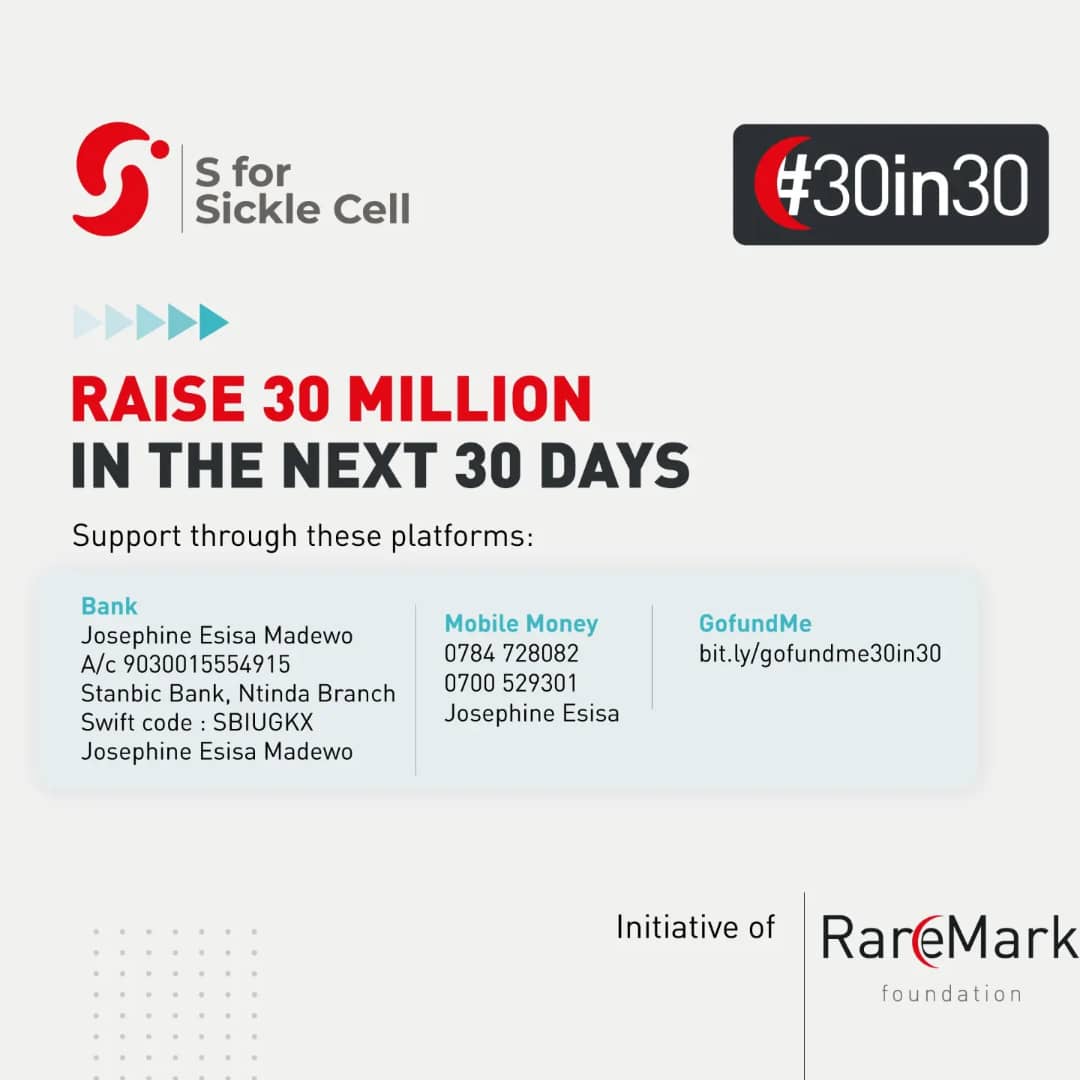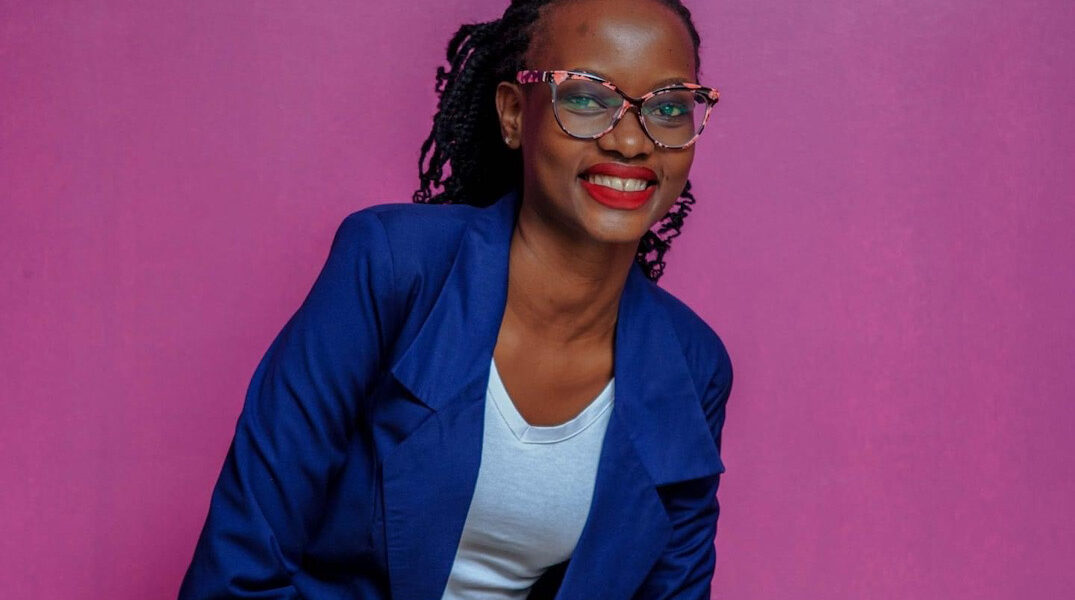Sickle cell disease is the most common genetic disease that is particularly prevalent in the sub-Saharan region. 20 % of Ugandans have this genetic trait. Upon the onset of the disease, the life expectancy and quality of life of those affected are considerably reduced.
While much emphasis is placed on the prevention of sickle cell disease, a huge gap remains in the management of the disease with several patients detailing harrowing tales of what they go through.
Josephine Esisa is hoping to bridge this gap through her non-profit organization Rare Mark Foundation.
“I would like to be able to help change that narrative for them. It’s a genetic disorder, so why would one suffer for something that they had no control over.”Says Josephine.
Josephine says coming from a family of medics, protected her from traumatic hospital experiences that other warriors go through when seeking medication at health facilities. Whenever she was sick, she got home treatment, however, on the rare occasions she visited the hospital, the glaring reality of what other warriors face hit home hard.
“Whenever I went to the hospital, I never liked the treatment. I was either neglected, the pain was minimized or I was not heard, and that is what the people who did not have the privilege that I had got to experience daily.”
The polarity of this experience got her thinking, about why should it be different for her and them.
“We already have so many organizations that are creating awareness around sickle cell but they are talking about the part of prevention, but no one is advocating for those already living with the disease ”
Josephine and her co-founder Don Magezi initially launched a social media group for sickle cell warriors in 2020, with the sole purpose of creating awareness online. “But then, while interacting with different people, we saw that there was a serious need for something bigger than just an online rise up. So from then on, we created a support group for sickle cell warriors that was giving them a community where they can engage with themselves and give themselves advice and know that they are not alone in regards to being a sickle cell warrior”.
However, they witnessed tremendous growth in the number of people that has since pushed them to launch a foundation.
Raremark Foundation Uganda is a non-profit organisation building a community for Sickle Cell warriors, and advocates for people affected and living with Sickle Cell Disease. Through their program S for Sickle Cell they carry out activities that sensitise, create awareness, and educate the public on this chronic illness. Through their activities they have created a support group for Sickle Cell Warriors in Uganda, that provides physical, emotional and psycho-social support to those under their program. Those under the program get to have weekly support group therapy sessions to help with their mental health and direct connections to medical doctors that are understanding of the condition, while having to lean on each other during times of a crisis, because they believe “people need people”
They currently have over 30 patients and caretakers under their program.
On the downside, this exponential growth means a strain on their resources.
To overcome this challenge, and in line with this year’s National Sickle Cell Awareness Month theme, “Sickle Cell Matters,” they launched the #30in30 campaign to raise30 million Ugandan Shillings this month. Josephine says the funds will be used to bring closer healthcare, provide financial support to warriors in need, expand the support group and include caretakers as well, carry out out-reaches that will not only sensitise but educate the rural and urban communities on Sickle Cell Disease, while making the life of a warrior so much easier.
“Many people need access to medical care, access to mental health, and even more form of support. So that’s where we got the need for the fundraising campaign. We are also looking for partnerships in form of health care that will provide an essential guide on medication, treatment and more.”
Besides funding, Josephine says, finding the right health care partners that are very understanding, patient and empathetic, towards the vigils remain a challenge and the negative attitude some parents show in providing help to their children. “Most people say the life span of someone living with sickle cell is like a year or 3 years. But you can live long, if it’s managed properly.”
In future, she looks forward to extending the foundation’s campaigns beyond Kampala, to different parts of Uganda, especially in rural areas, creating Sickle Cells disease advocates, providing proper home care services, and reaching out to more medical practitioners. “In the event we manage to change the perspective that doctors and medical practitioners have on sickle cell warriors, the perspective that sickle cell warriors have will also change.”


